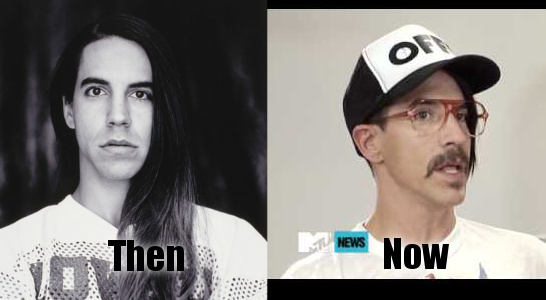 “Microsoft isn’t evil, they just make really crappy operating systems.” – Linus Torvalds
“Microsoft isn’t evil, they just make really crappy operating systems.” – Linus Torvalds
“Nothing taught by force stays in the soul.” Plato
“Men more frequently require to be reminded than informed.” Samuel Johnson
“According to a rule of thumb among engineers, any tenfold quantitative change is a qualitative change, a fundamentally new situation rather than a simple extrapolation. ‘More is different.'” –Philip Warren Anderson
“I remember asking a wise man, once . . . ‘Why do Men fear the dark?’ . . . ‘Because darkness’ he told me, ‘is ignorance made visable.’ ‘And do Men despise ignorance?’ I asked. ‘No,’ he said, ‘they prize it above all things–all things!–but only so long as it remains invisible.” ? R. Scott Bakker, The Judging Eye
“The cognitive functioning of a human brain depends on a delicate orchestration of many factors, especially during the critical stages of embryo development—and it is much more likely that this self-organizing structure, to be enhanced, needs to be carefully balanced, tuned, and cultivated rather than simply flooded with some extraneous potion.”
? Nick Bostrom, Superintelligence
“The original is unfaithful to the translation.”
? Jorge Luis Borges
“Was it you that killed me, or did I kill you?” Abel answered. “I don’t remember anymore; here we are, together, like before.”
“Now I know that you have truly forgiven me,” Cain said, “because forgetting is forgiving. I, too, will try to forget.”
? Jorge Luis Borges
“Begin at the beginning,” the King said, very gravely, “and go on till you come to the end: then stop.”
? Lewis Carroll, Alice in Wonderland
“It reminds me of a story that Ulysses S. Grant tells in his memoirs about a night he spent on the wild prairies of East Texas. He and a fellow officer were near Goliad when they heard “the most unearthly howling of wolves” directly in front of them. They couldn’t see the wolves through the tall prairie grass, but the men knew they were near. The other officer asked Grant how many wolves he thought were in the pack. Grant, not wanting to seem afraid, tried to lowball the number at twenty […] The men arrived to find just two lone wolves sitting on their haunches. These were the sole animals who had made all the noise that had scared Grant so badly, that had convinced him he was overwhelmingly outnumbered. Four decades later, after a full life in public service and politics, Grant would relate that he often thought of this incident when he heard of a group changing course due to criticism or someone giving up because they were deterred by an unseen enemy. The lesson in such situations, he concluded, was this: “There are always more of them before they are counted.” – Ryan Holiday

Contemplate Rivers Cuomo, of Weezer used-to-be-fame. Does this look like a man who diligently checks his groupies’ IDs before letting them on the tour bus? It’s doubtful.

RHCP’s Anthony Kiedis was recently sighted sporting a combo of pedostache + pedoglasses (or “molestacles”, as they are sometimes called – check your Funk & Wagnalls). In the 90s, RHCP had a hit with “Love Rollercoaster”. Be advised: Kiedis’s own Love Rollercoaster is conspicuously missing the “You Must Be This Tall To Ride” sign.

Slipknot’s vocalist Corey Taylor has also gotten on to the trend of hanging a “free candy” sign on the tour bus. The truly disturbing part about this man is that sometimes he can be heard performing vocals for Slipknot.
 People who fight social change do so for two reasons. The first is that sometimes society changes in a bad direction. The second is that sometimes society changes in a good direction. Yeah, think about it. How terrible would it be to spend your life fighting eugenics or whatever, have society adopt eugenics anyway…and then society doesn’t collapse. Wouldn’t that just be the pits and the shits? Why were you even alive?
People who fight social change do so for two reasons. The first is that sometimes society changes in a bad direction. The second is that sometimes society changes in a good direction. Yeah, think about it. How terrible would it be to spend your life fighting eugenics or whatever, have society adopt eugenics anyway…and then society doesn’t collapse. Wouldn’t that just be the pits and the shits? Why were you even alive?
On a related jag: lots of famous men use prostitutes.
Charlie Sheen. Tiger Woods. A-Rod. These are wealthy, high-status men. They could have consensual sex with any number of women. Yet they choose prostitutes.
I think it’s because sex prostitutes is explicitly transactional. You fuck them, you pay them, and they leave. They don’t expect you to talk or be entertaining, they don’t gab about you to their friends or the tabloids, they don’t try to move into your house or poke holes in your condoms. THEY LEAVE.
Economists talk about revealed preferences, where peoples’ true desires can be triangulated through their buying habits. If men, given unlimited money and status, choose prostitutes, does this mean that this represents some kind of…ideal preference? I heard someone say that a communist sees a mansion and thinks “nobody should have this much” while a capitalist thinks “everyone should have this much.” Are prostitutes the mansion in this scenario? In the future, will there be social welfare so that every man can afford prostitutes?
I think there’s more to famous men using prostitutes than it just being more convenient. It’s an upgraded form of love, love made efficient.
Love is traditionally haphazard, rambling, impenetrable, irrational, awkward, and (to an extent) based on deception. From the male end, it looks like this. Make yourself attractive. Approach women. Hope they don’t write blog posts about how creepy you are. Court a woman over months or years. At any stage in the proceedings, things can fall apart for any reason at all, or even no reason at all, and you’ve just wasted four whole years putting the toilet seat up and pretending to like Michael Bublé.
In its natural form, love is like crude oil, filled with grit and sand and byproducts. Sometimes it’s still usable. When the Japanese occupied Tarakan island they found that the crude was light enough to pump directly into their ships’ boilers. But why not refine it? Why not strip out all the stuff you don’t need?
Prostitution is refined love.
A working lady can fulfill any need you can possibly have, whether you want carnal knowledge, emotional intimacy, or even just someone to hug. Is it fake? Yes. For a whole lot of us, fakeness is all we need. I don’t need to actually IRL kill people in Battlefield 4. I don’t need rappers in music videos to actually own those expensive cars. All that matters is that the illusion is real enough, and thanks to technology, it either is or soon will be.
Soon, we might be looking at people who get married the way we look at people who churn their own butter. It will be a bucolic hipster lifestyle choice.
There’s nothing wrong with living in the past. Look at the NES gaming console, and how people fondly remember it. Some people build shrines to the NES. We have to do this, because the console can’t speak. It lacks a voice, so we commemorate it.
The human race is in a similar but different predicament. We’re coming obsolete…but unlike every other product in history, we can talk about our own obsolescence.
 “Microsoft isn’t evil, they just make really crappy operating systems.” – Linus Torvalds
“Microsoft isn’t evil, they just make really crappy operating systems.” – Linus Torvalds



